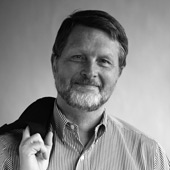When Italian photojournalist Martina Bacigalupo first traveled to Africa in 2010 as a photojournalist on assignment for Human Rights Watch, she was focused on the dire situation of women with disabilities in Northern Uganda. The Acholi culture there was in distress, and in the town of Gulu where more than half of the population has been displaced. The people there have had their entire way of life threatened by over twenty-three years of war. Rape, torture, sickness, and lack of education have replaced their former stability.
Though Bacigalupo’s photojournalistic efforts have been about the effects war in Northern Uganda, and deserving of continued press and coverage, this story is really a sidebar to her efforts there. It all began one day in January 2011 when she needed a source of electricity to charge the batteries of her camera. She traveled to the nearby town of Gulu, where she found a small photo studio that specialized in ID photos (due to the political chaos there, ID cards are crucial).
While there, she noticed a small studio portrait photograph on the counter with a neat rectangle cut out in the location of the head and shoulders. Curious, she asked about it—and was informed it was just trash, the leftovers of an ID photo and had been meant to be thrown out, which it promptly was.
Just then, Bacigalupo was approached by a man named Obdal Denis, who happened to be standing nearby. Obdal said he could show her more of the same—if she were interested. She followed him up the road to Gulu Real Art Studio, which he owned. Obdal explained that his standard ID photo equipment could only make four prints at a time. If customers wanted just one ID photo, it was easier to take a single large portrait and cut the picture down to show only the face. The rest of the print would be discarded, just as Bacigalupo had seen in the other studio. With her trained eyes, Bacigalupo saw something more than trash.
Obdal told her that he would save the photographic discards from his passport and ID studio, and that she could come back later for more. True to his word, when she arrived again, he handed her a little box with dozens of the cut out images.
What did Martina Bacigalupo see in these odd, photographic discards? She saw the people of Uganda. With the heads removed for the all-important ID card, she was left to imagine the lives she held in her hand. As Bacigalupo herself wrote in her book, she likened the incomplete images to the spiritual voices in Spoon River Anthology by Edgar Lee Masters—but these were the voices of Uganda: the teacher, preacher, soldier, farmer, and rebel.
The portraits—beautifully incomplete as they are, force us to look at the other. We focus now on small details one might miss: such as the sitters who had no jacket and had to wear an ill-fitting one provided by the studio; the man whose small son awaited the photo session by resting at his feet; the soldier with red beret in hand; the patterned, traditional floor-length dresses of women—so vibrant and joyful in a country torn apart.
Thanks to The Walther Collection Project Space in New York City, the photographs now have a home. Part of the Collection's mission is to support and promote the dissemination and enjoyment of contemporary photographic art through annual public exhibitions, a publishing program, and website. An exhibition of The Walther Collection will open at Fotografiska in Stockholm in February and will include the Gulu Real Art Studio ID photos.
About Martina Bacigalupo: (Italian, b. 1978, Genoa; lives and works in Burundi, East Africa, and Paris). For the past four years Martina Bacigalupo has been working as a freelance photographer in East Africa, based mainly in Burundi, working on personal projects and collaborating with different international NGOs (Human Rights Watch, Amnesty International, Médecins Sans Frontières, Care, and Handicap International).
++++
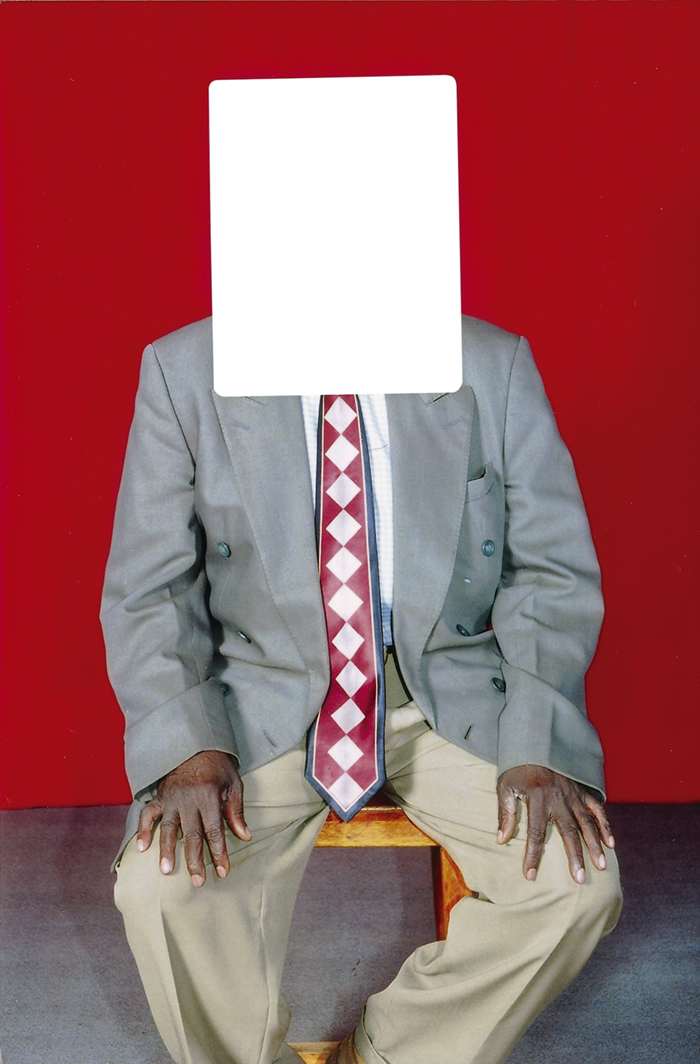
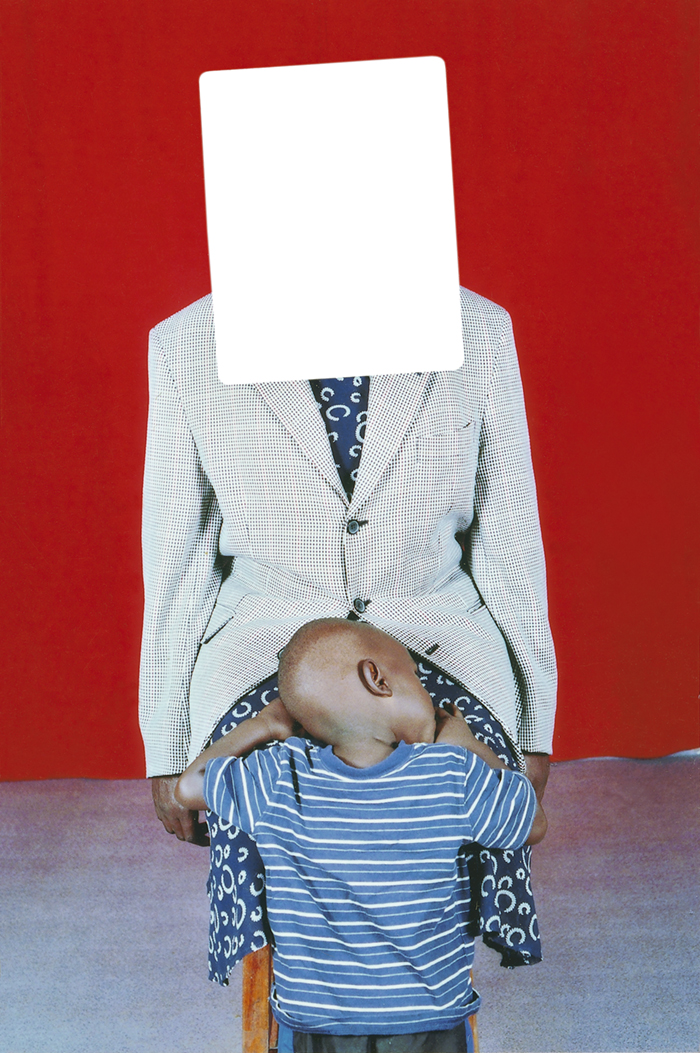
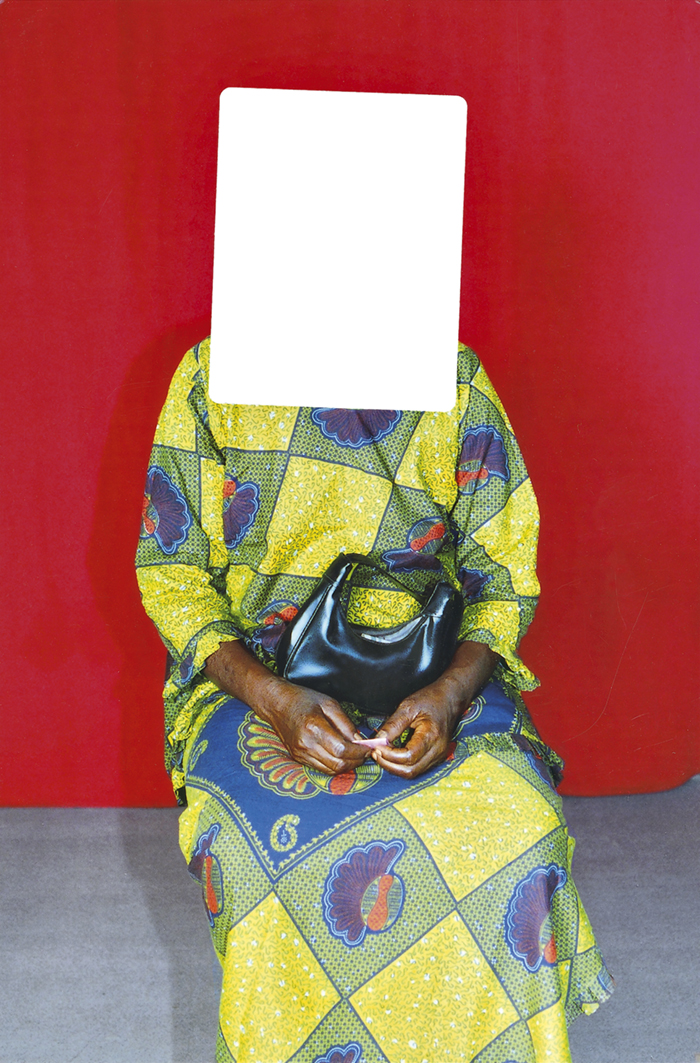
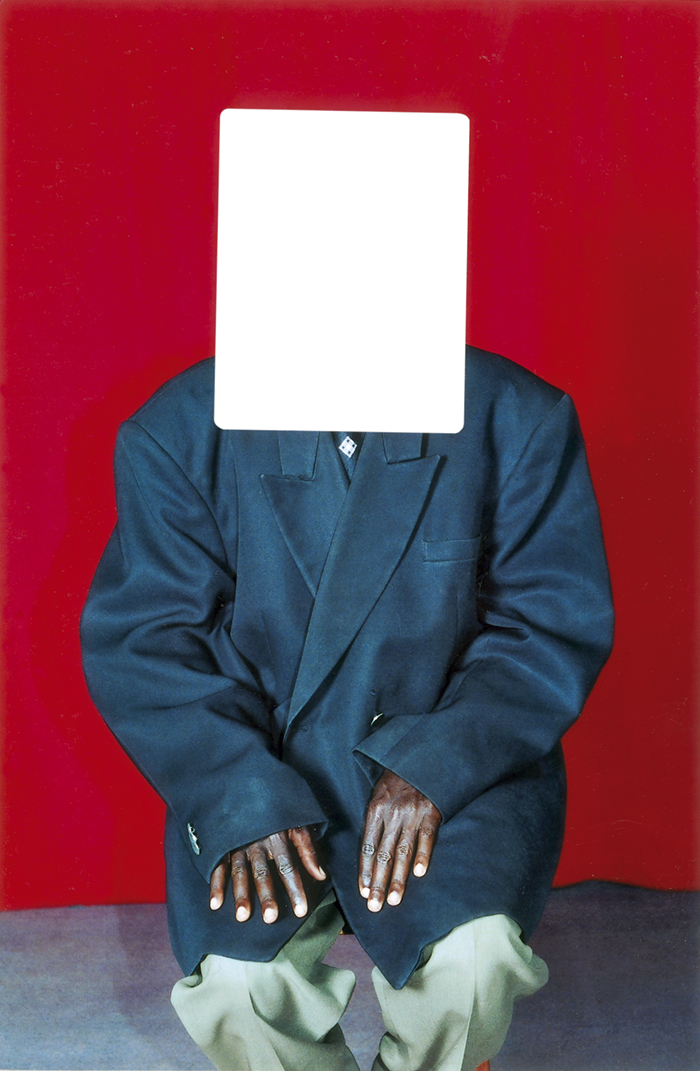
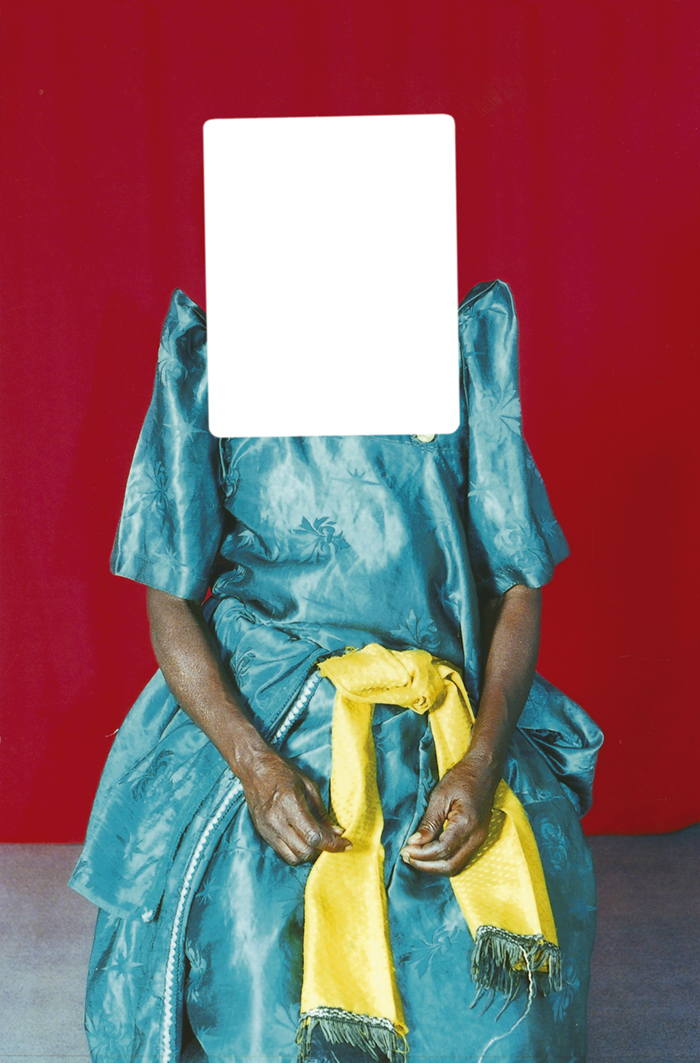
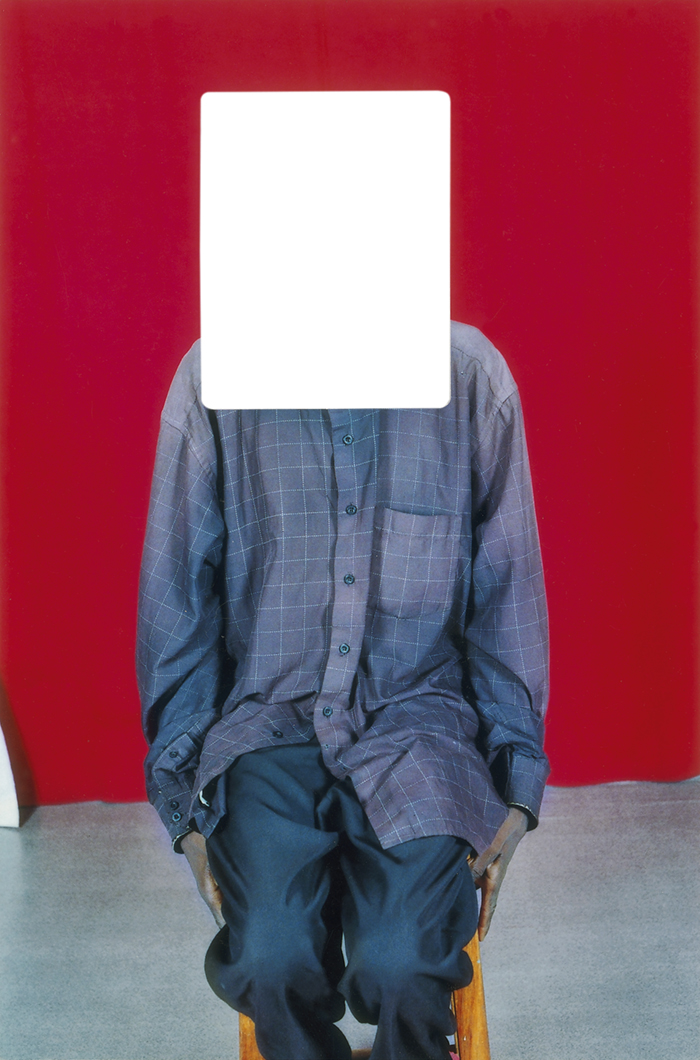
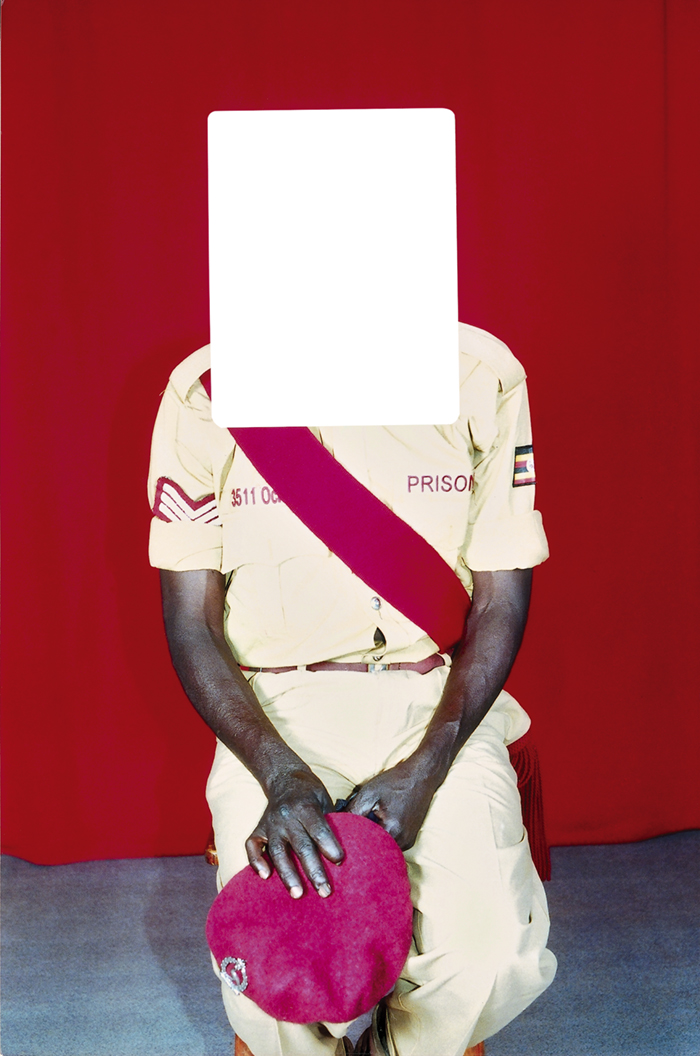
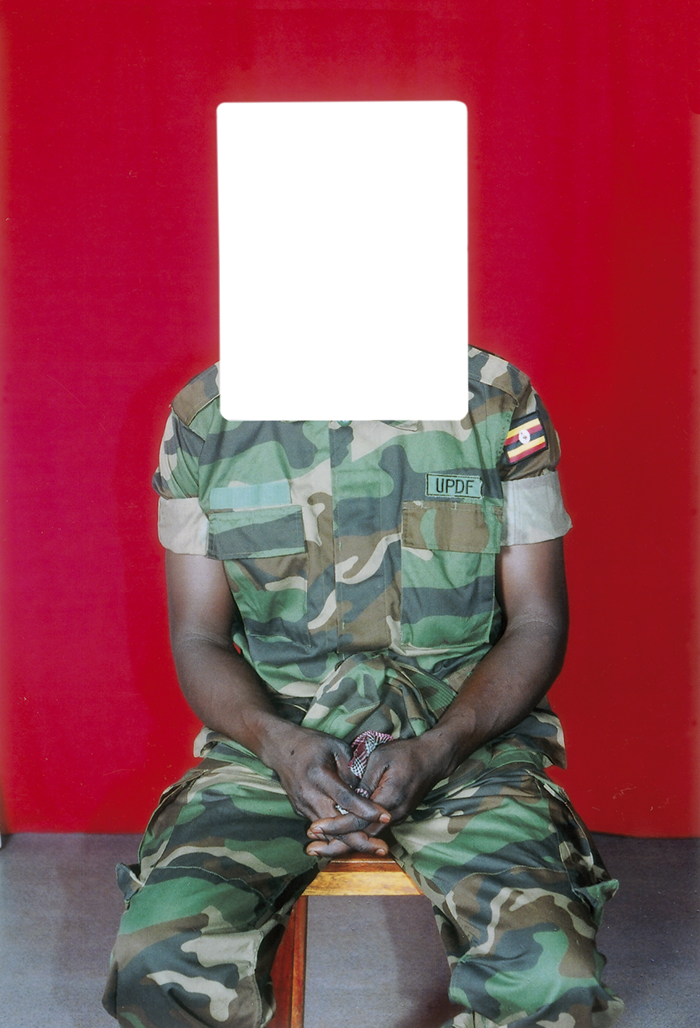
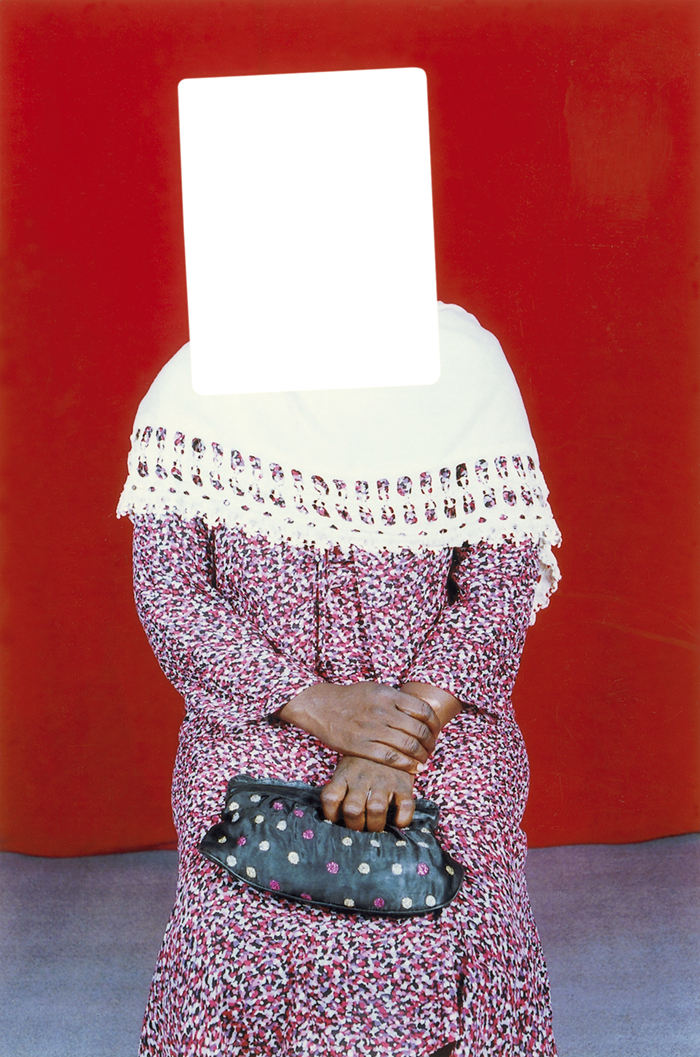
All images: Martina Bacigalupo, Gulu Real Art Studio, 2011–2012. Courtesy the artist and The Walther Collection.
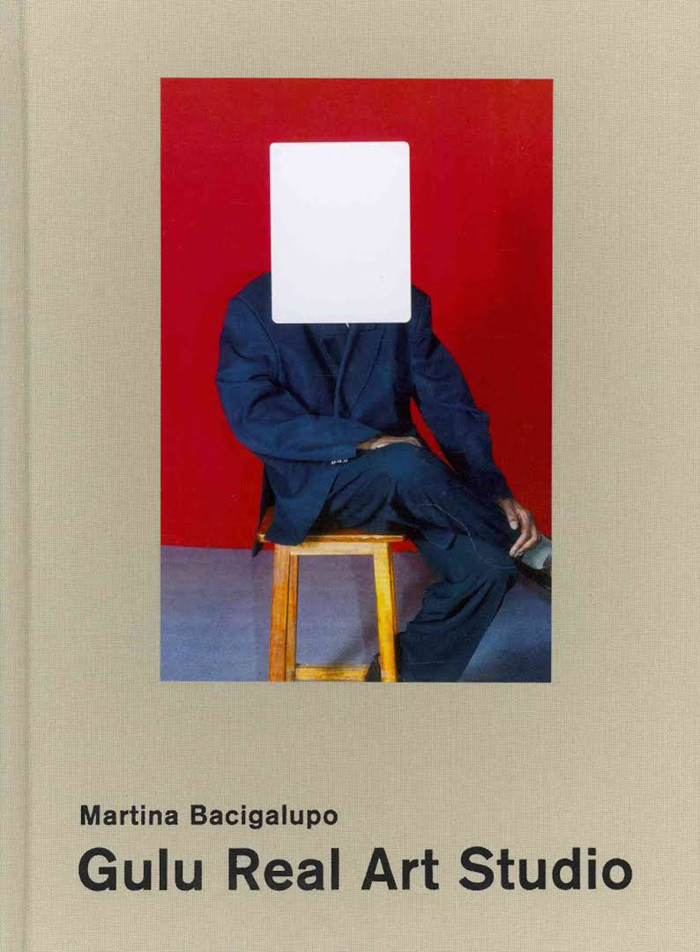
Martina Bacigalupo's book Gulu Real Art Studio is published by Steidl.

